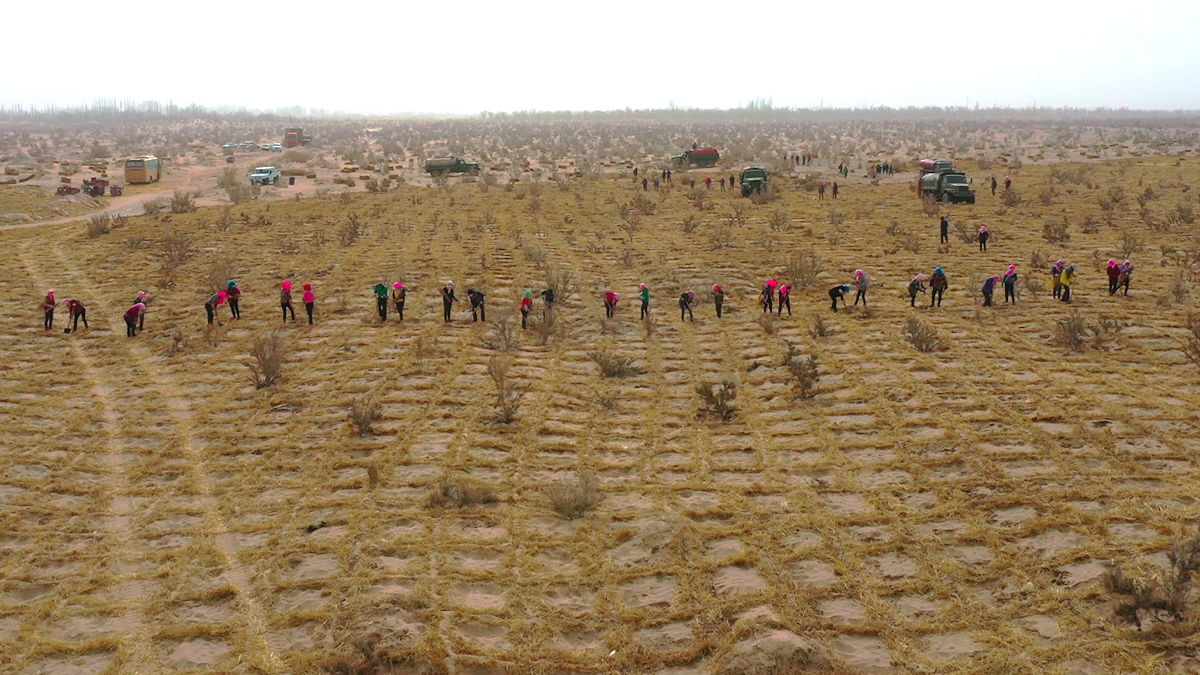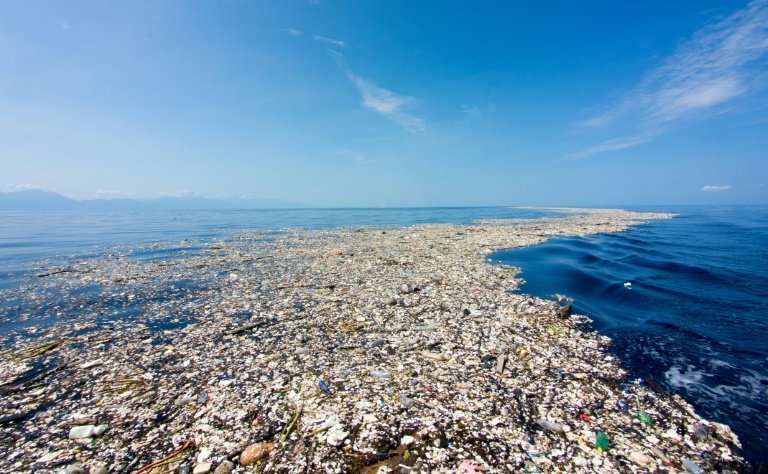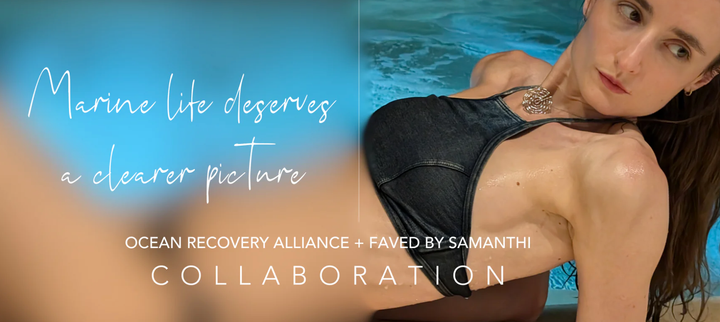Good News for Today Feature – 2019 October Updates

A few minutes every morning is all you need.
Stay up to date on the world's Headlines and Human Stories. It's fun, it's factual, it's fluff-free.
Amidst the unfolding Trump-Ukraine scandal, South Africa and France struggling to respond to femicide crises, and continual demonstrations and violence in Hong Kong and Indonesia, it can seem as if the world is spiraling backwards.
Yet despite the loud and overwhelming headlines about all the wrongs in our world today, the truth remains that there is also a lot of good.
As part of our ongoing commitment to showcasing the good news stories alongside the bad, The Millennial Source has once again arrived at that time in our publishing calendar when we try to put current affairs into greater perspective.
Chinese conglomerate applauded by the UN for environmental protection initiative
Ant Financial Services Group, previously known as Alipay, has received the United Nations’ (UN’s) highest environmental honor for the company’s reforestation initiative.
The Champions of the Earth Award is presented by the United Nations Environment Program (UNEP) to five to seven laureates per year. Recipients come from both the public and private sectors, and are recognized for outstanding environmental leadership.
The announcement comes at a time when China’s economy is facing greater international scrutiny, after the nation refused to join 77 other countries in committing to carbon neutrality by 2050.
The Ant Forest app encourages users to choose greener alternatives in their daily lives. Examples include walking or biking to work instead of driving, and recycling unneeded furniture. Engaging in such lower-carbon activities earns app users “clean energy grams” and other “green points”, which add up to real environmental change.
For example, taking the bus instead of driving earns a user 80 grams of clean energy. Once a user collects 17,900 grams of energy, they can plant a virtual tree in the Ant Forest. And every time a virtual tree is planted, Aliplay plants a real one in an arid region like Inner Mongolia.
To date, 500 million people have joined the Ant Forest, resulting in over 100 million trees being planted across 930 square kilometers. Adding an extra level of interactivity, app users can track the planting and growth of their trees in real time via satellite imagery.
“Ant Forest shows how technology can transform our world by harnessing the positive energy and innovation of global users.” – Inger Andersen, UNEP Executive Director
In response to receiving the award, Eric Jing, Chairman and CEO of Ant Financial said, “Alipay Ant Forest reflects our belief that technology can and should be harnessed for social good. We are grateful to our many users and partners who have joined our efforts to plant 122 million trees and advance a shared vision of sustainable and inclusive development. Alipay Ant Forest’s popularity shows that the public is ready to take action to combat climate change.”
[article_ad]
UCLA is creating the world’s first research institute on kindness
The University of California, Los Angeles (UCLA) has just announced the launch of a research institute dedicated to the science of kindness.
Thanks to a $20 million grant from the Bedari Foundation – a private family foundation that aims to encourage “…people to connect more deeply with themselves, their community and with nature” – the Bedari Kindness Institute will start running immediately. It is hoped that research conducted at the institute will create opportunities to translate the science of kindness into real-world practices.
The institute will provide funding for projects that study how the inner workings of the human mind lead to kindness, and how these mechanisms can be harnessed to create more humane societies. For example, UCLA psychologists are currently delving into the impact that kind living can have in improving moods and reducing depressive symptoms.
In addition to supporting scientific research, the center will also provide mindfulness training to staff, students and poorer Los Angeles communities.
“Our vision is that we will all live in a world where humanity discovers and practices the kindness that exists in all of us… Much research is needed to understand why kindness can be so scarce in the modern world,” said Matthew Harris, the Bedari Foundation’s co-founder and a UCLA alumnus.
UCLA Chancellor Gene Block explained, “Universities should always be places where we teach students to reach across lines of difference and treat one another with empathy and respect – even when we deeply disagree.”
“In the midst of current world politics, violence and strife, the UCLA Bedari Kindness Institute seeks to be an antidote,” said Darnell Hunt, Dean of UCLA’s Division of Social Sciences.
[article_ad]
After a year of experimenting, Ocean Cleanup vessel is successfully collecting plastic from the Great Pacific Vortex
In the vast waters of the Pacific, between the North American mainland and Hawaii, lies a massive, whirling vortex of plastic waste.
Due to the flow of ocean currents, a giant island of trash containing over a trillion pieces of debris has formed. The pollution covers an area about twice the size of the US state of Texas. The Pacific Vortex is one of five major plastic accumulation zones in the world’s oceans caused by converging currents. These zones are often referred to as “garbage patches”.
Plastic does not decompose in these ocean environments. Instead, the debris slowly breaks down into microplastics that pose a serious threat to marine life. If we do not find a way to collect the garbage, the problem will not go away.

The massive garbage patches were first discovered in the 1990s, sparking global outcry. At the time, scientists predicted that cleaning up the messes would take thousands of years.
However, Boyan Slat, a university dropout from the Netherlands, believed he could do it in less than 10 – if he could just build the infrastructure he needed.
Skeptical, many experts ignored Slat’s claims in his TedEx presentation. But early in 2013, several news sites picked up the TedEx video, and within a matter of days, Slat’s idea went viral. The media attention enabled Ocean Cleanup to assemble a team and crowdfund the resources to build the necessary equipment.
After one year of testing, Ocean Cleanup recently announced that the System 001/B vessel has successfully started capturing plastic on the sea. The system uses natural ocean currents to passively catch the debris – a far less energy-intensive method than active collection. The machine’s precision allows it to capture microplastics as small as one millimeter in diameter.
As a bonus, the machine has also shown that it can capture abandoned commercial fishing nets and other hazards to aquatic wildlife.
Sales of plastic bags have fallen by 90% in the UK
Since the UK introduced a 5-pence levy for plastic bags in 2015, use of plastic bags has decreased by 90% in the country’s major supermarkets.
The UK Department for Environment, Food and Rural Affairs (DEFRA) recently announced that England’s seven largest supermarkets distributed 490 million fewer single-use plastic bags in 2018/19 than during the previous year. In addition, single-use plastic bag sales fell by 37% across all UK large retailers.
Welcoming the results, UK Environmental Secretary Theresa Villiers stated, “Our comprehensive action to slash plastic waste and leave our environment in a better state continues to deliver results, with our five-pence charge reducing plastic bag sales by 90% in the big supermarkets. No one wants to see the devastating impact plastic waste is having on our precious wildlife. Today’s figures are a powerful demonstration that we are collectively calling time on being a throwaway society.”
To put this achievement in perspective, just five years ago, more than 7.5 billion bags were provided to UK store customers per year. Over the past year, only 1.1 billion single-use plastic bags were sold. And thanks to the levy, 169 million euros have been donated to charities.
[article_ad]




Comments ()